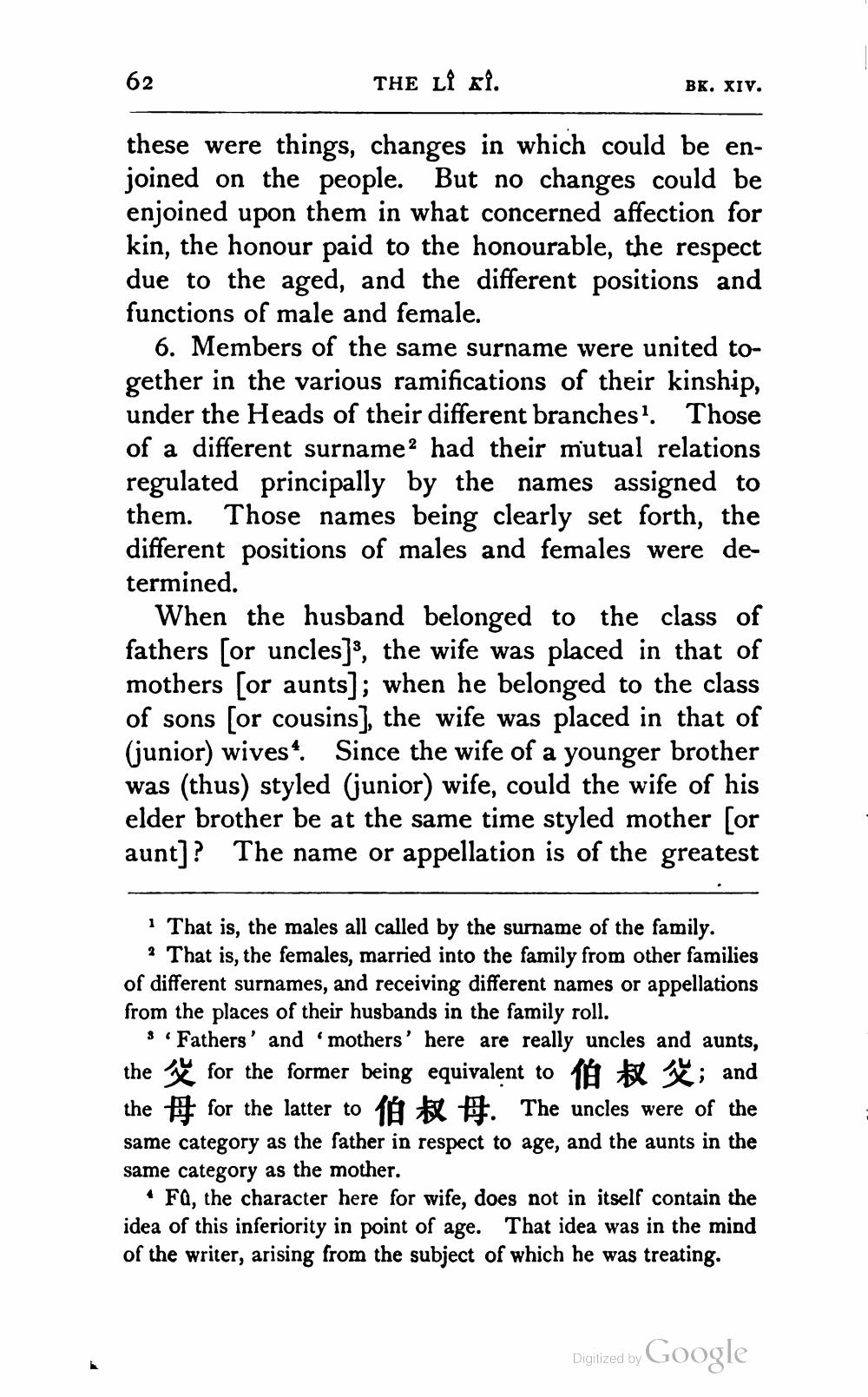________________
62
THE LỄ KỈ.
these were things, changes in which could be enjoined on the people. But no changes could be enjoined upon them in what concerned affection for kin, the honour paid to the honourable, the respect due to the aged, and the different positions and functions of male and female.
BK. XIV.
6. Members of the same surname were united together in the various ramifications of their kinship, under the Heads of their different branches1. Those of a different surname2 had their mutual relations regulated principally by the names assigned to them. Those names being clearly set forth, the different positions of males and females were determined.
When the husband belonged to the class of fathers [or uncles]3, the wife was placed in that of mothers [or aunts]; when he belonged to the class of sons [or cousins], the wife was placed in that of (junior) wives. Since the wife of a younger brother was (thus) styled (junior) wife, could the wife of his elder brother be at the same time styled mother [or aunt]? The name or appellation is of the greatest
1 That is, the males all called by the surname of the family. 2 That is, the females, married into the family from other families of different surnames, and receiving different names or appellations from the places of their husbands in the family roll.
Fathers' and 'mothers' here are really uncles and aunts, thefor the former being equivalent to 1; and
for the latter to
the #. The uncles were of the same category as the father in respect to age, and the aunts in the same category as the mother.
Fû, the character here for wife, does not in itself contain the idea of this inferiority in point of age. That idea was in the mind of the writer, arising from the subject of which he was treating.
Digitized by
Google




